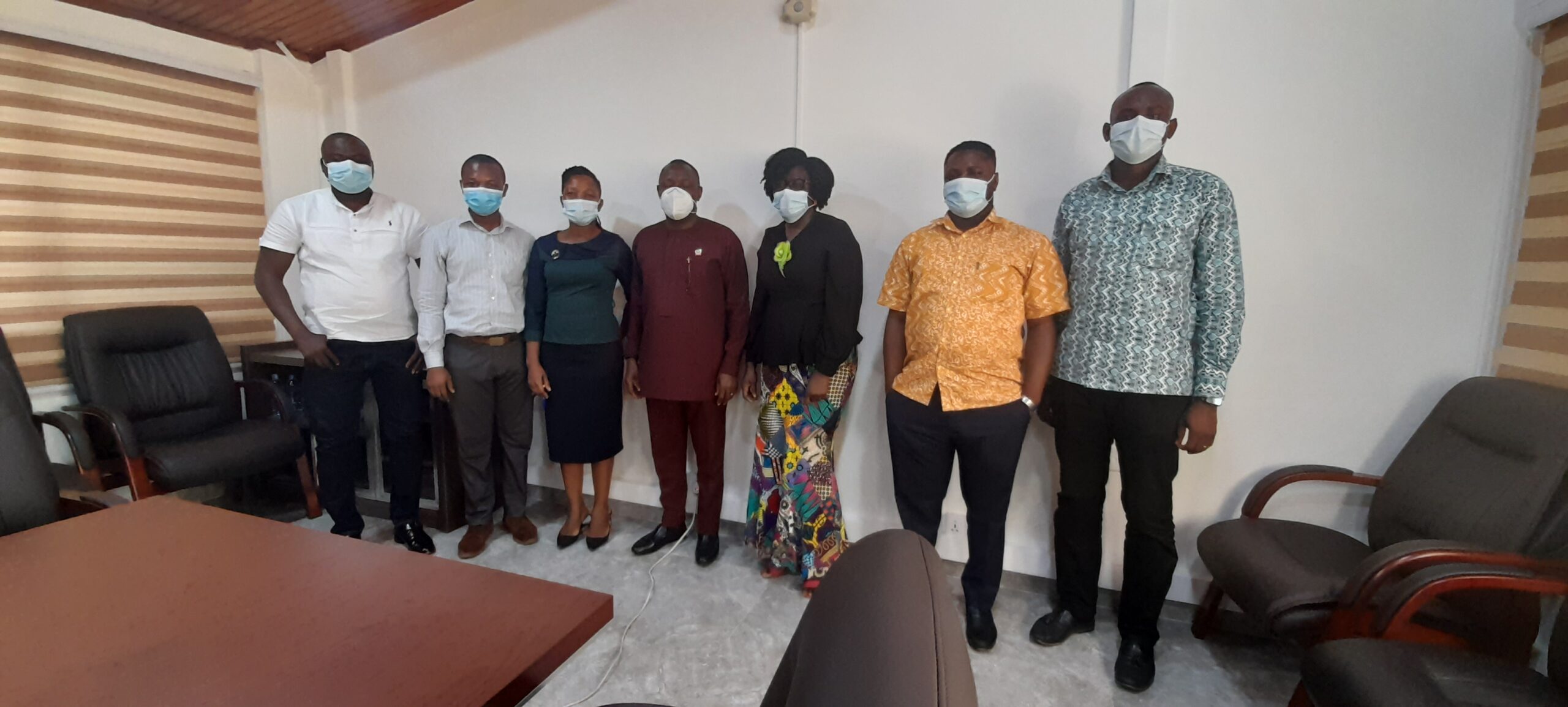CSOs Call for Automation of IGF Systems at the District Level
- Advertisement -
Twenty-five Civil Society Organizations (CSOs) and Networks led by the Foundation for Security and Development in Africa (FOSDA) with support from OXFAM have presented a four-point recommendations for Improving Internal Generated Funds (IGF) to the Ministry of Local Government, Decentralization and Rural Development (MLGRD). The recommendations were contained in a letter submitted to the Minister of Local Government, Decentralization and Rural Development.
According to the group, lessons learnt from a 2020 multi-stakeholder meeting with key officers of districts across the country has revealed that the possibility of improving IGF and meeting or exceeding targets will come to fruition if more emphasis is given to automation/digitization of local mobilization systems and deeper collaboration with CSOs. This is also based on the national level automation drive and the assertion that “domestic revenue will grow by GHS 30 billion if the country is fully automated” According to the Vice President of the Republic.
- Advertisement -
Speaking in the meeting, FOSDA Programs Manager, Theodora Williams indicated that the group is concerned that between 2014 to 2019, IGF execution rate of Metropolitan, Municipal and District Assemblies (MMDAs) has averaged 64% of their targets. She added that “even though some districts are able to meet or exceed their revenue targets, a greater majority of between 60% to 70% are unable to meet their targets and this is partly contributing to the reliance on central government transfers which are erratic in terms of disbursement”. “Low IGFs also mean that districts are unable to undertake significant development projects and services that would improve the lives of their citizens, particularly pro poor services that are essential in this COVID- 19 era; and non-performance on the District Performance Assessment Tool (DPAT) target of 90% as well as affecting funds from the District Assembly Common Fund (DACF)”.
- Advertisement -
In a presentation, the group made the following proposals
- Instituting Information and Communication Technology (ICT) systems for revenue collection; management and accountability.
- Shifting scoring on software for IGF collection under Performance Measures (PM) to Minimum Conditions (MC) under DPAT assessment framework
- Collaborate with and support CSOs in advocacy on DRM/IGF automation to MMDAs and Citizens
- The Ministry should ensure that there are systems in place to widen the tax net at the local level e.g., levying tradesmen; charging fees on individual construction sites and night business operators
Speaking on behalf of the Ministry, the Principal Planning Officer Mr. Raphael Edu-Gyan noted that the Ministry has taken cognizance of the IGF challenge and working around the clock to make improvements. He added that that even though the condition on the ground may not support total digitization in the short term, substantial progress such as the Central Monitoring Dashboard (CMD) has been developed to support automation.
- Advertisement -
He added that “the Ministry is currently undertaking reforms on the DPAT Indicators to not only help improve IGF at the district level but also ensuring that pro poor services are delivered to the citizens”.
Mr. Gyan described the proposals as laudable and crucial for consideration. He was hopeful for more collaboration with the group to help with ideas to support IGF improvement and consequently service delivery in the districts.
The group was represented by FOSDA, Ghana Anti-Corruption Coalition (GACC), Intervention Forum (IF) and Peoples Dialogue (PD)
The meeting with the Ministry is part of advocacy activities on the “Domestic Revenue Mobilization (DRM) Enhancement through Citizen Engagement”, project being implemented by FOSDA with support from OXFAM. FOSDA is championing this course under its human security mandate that seeks to minimize threats arising from poverty and human insecurity.
Other CSOs in the group are Friends of the Nation (FoN), NorSAAC, PFM Network, Center for Advancing Rural Opportunity (CARO), Edu-Media Ghana, Development Research and Advocacy Center (DRAC), Northern Regional Youth Network (NRYN), Youth Without Borders, African Development Programme (ADP), Core Resolve, Save the Environment Foundation, JANOK Foundation, Community Focus Foundation, Ark Development Foundation, Renel Ghana Foundation, Talent Tahuf Foundation, AJ Foundation, GLONEDHO, Agenda Developers, RU Care Foundation, Rootslink Africa and Ghana Federation of the Urban Poor (GHAFUP)
- Advertisement -


